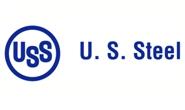Government/Policy

July 10, 2016
ITC Temporarily Suspends Section 337 Case
Written by Sandy Williams
The U.S. International Trade Commission has put the Section 337 case brought by US Steel against Chinese steel companies on hold until Oct. 2, 2017.
Administrative Law Judge Dee Lord said that two of the three complaints in the case, price fixing and transshipment, belong under the purview of antidumping and countervailing duty laws that which are handled by the Commerce Department.
Inside U.S. Trade reported that the ITC decision said, “The false designation of origin claims are based on respondents’ alleged evasion of antidumping and countervailing duty orders issued by the Commerce Department, which has several ongoing investigations. The record therefore shows that the false designation at least ‘in part’ falls within the purview of antidumping and countervailing duty laws. This requires the ITC to notify the Secretary of Commerce under section 337 (b)(3), according to the order.”
Judge Lord said “there is no evidence in the record” that Commerce had been notified of the investigation as required by law.
The third claim of the 337 case, missapropriation and use of trade secrets, could result in the ITC consulting with or handing over that portion of the investigation to the Criminal Division of the Justice Department. A decision to notify the Justice Department is not required by law.
The suspension of the case means that the ITC will pause all discovery and motions for the investigation until October 2017.
In the 337 complaint, US Steel requested that the USITC issue a general exclusion order on carbon and alloy steel products imports from China, a limited exclusion order blocking imports from the named respondents in the investigation, and a cease and desist order on alleged illegal practices.
US Steel spokesperson, Sarah Cassella said, “We’re reviewing the actions the administrative law judge has taken.”







